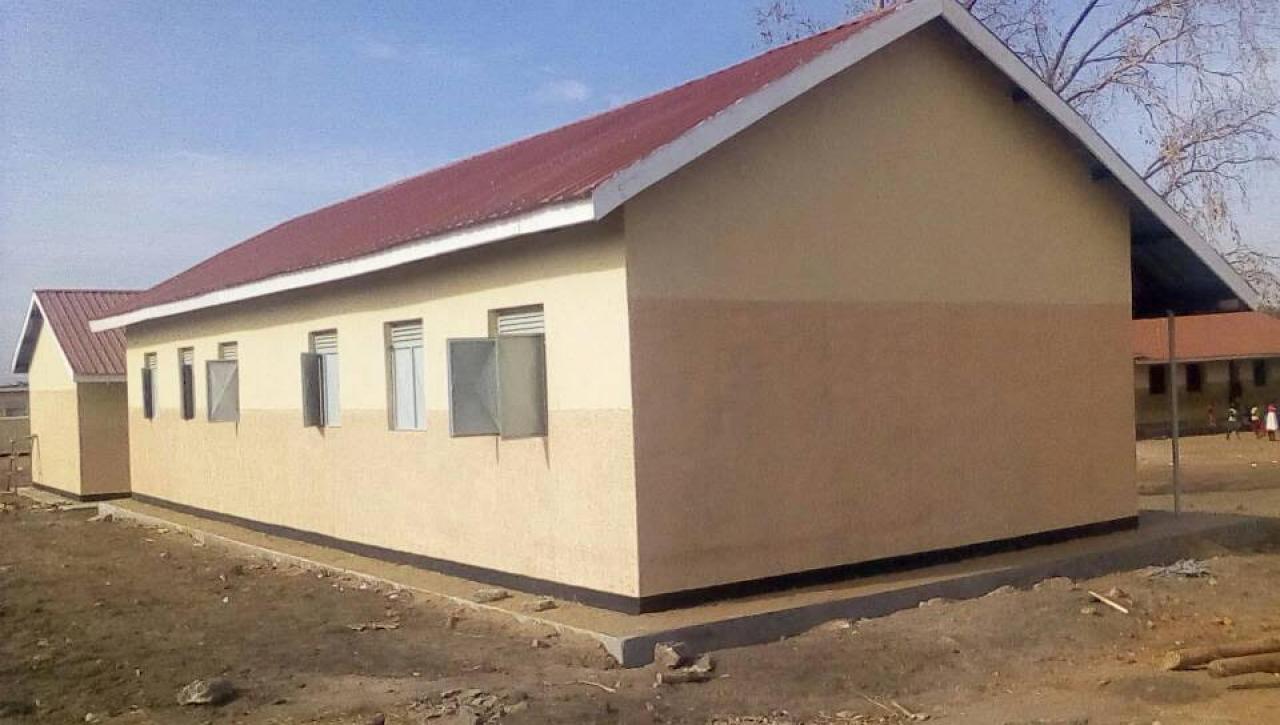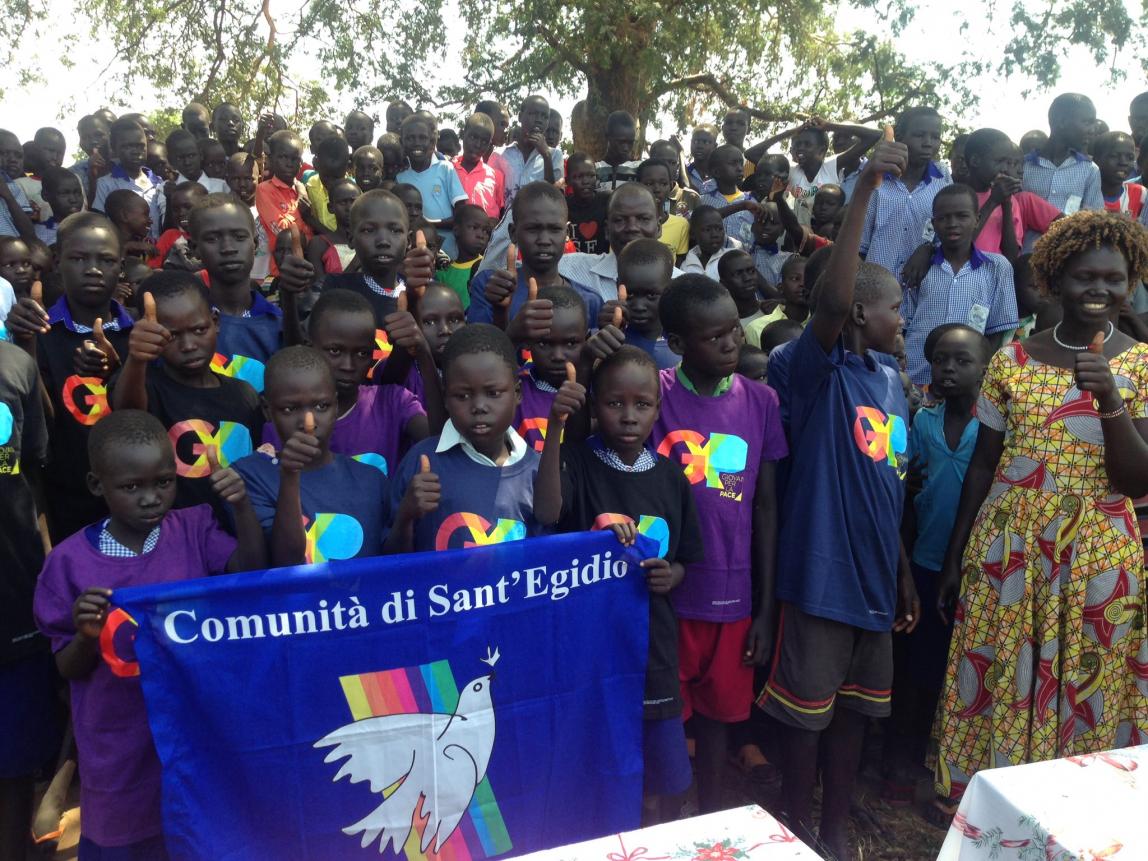The South Sudanese Refugees are now in Uganda
The civil war in South Sudan erupted in December 2013 and has not yet ended even though the repeated attempts to reach an agreement between the parties, which was signed on the Christmas Eve of 2017.
The number of South Sudanese refugees and asylum seekers has increased considerably to 2.5 million. Specifically, over one million of them are being hosted in Uganda's northern provinces.
Refugee camps are multiplying. Among the largest - after that of Bidi Bidi, which is near the city of Yumbe and hosts over 250,000 people - there is the Nyumanzi refugee centre. This place is where four years ago an elementary school, the "School of Peace", was opened near the city of Adjumani. In particular, the school was born from the will of the Community and the Diocese of Arua. The aim has been to offer education to many children and young people who have fled the war and who want to invest in their future.
The "School of Peace”
According to the Ugandan school calendar, the students took their end-of-year exams last December. In the Community School, 924 children participated in the test and most of them were promoted. The outcomes were positive, and the ratio of promoted/participants is very good: 71.0%.
In 2017, the first group of twelve students, who attended the "School of Peace", completed the first cycle of studies by obtaining in this way the final diploma. In order to achieve this academic goal, they had to travel to the only school in the camp where -so far- the final P7 [Primary 7] class has been present. This is located five kilometers away from ours.
The 2018 school year, which began on February 5, started with a desire to respond to the growing demand for schools from the South Sudanese community, which is increasingly tied to the "School of Peace". In particular, this school’s objective is to meet the needs of the children and adults.
Those enrolled for the 2018 school year are now 930. The majority (910) are originally from South Sudan; there is also a small group of Ugandans (20) with them.
Moreover, there was important news for all the students. During this year, it has been decided to inaugurate the class P7 thanks also to the availability of the other four masonry classrooms. They were created thanks to the contribution of friends of Sant'Egidio in Uganda. Therefore, this helped pupils to complete the cycle of elementary school.
Additionally, special attention will be given to women and girls who are present in the refugee camp. The presence of women is a majority in these centres in Uganda and it consists of girls of the school and pre-school age (13-17 years) and even adults. For instance, 64% of the households have a woman as the main point of reference (UNHCR).
An extremely small percentage of South Sudanese women were able to complete primary schooling (25.4%). Thus, this causes their widespread inability to express themselves not only in their native language but even in the national language of the country of arrival. Gender inequality characterizes boys of school age by leading in this way to a progressive reduction in the number of females who are enrolled in school. This occurs particularly in the final years of the first and second cycle when girls become the only support to manage the family.
On the side of women and girls
Most of the women in Nyumanzi, where Sant'Egidio's "School of Peace" is located, cannot read, write or communicate in English. This strongly hinders any possibility of relating to the host society. It even prevents access to the services that both the Ugandan government and international organizations provide to the refugee population. For this reason, functional literacy and learning basic English are two primary conditions to ensure better integration of women in the social networks of the host community. Hence, these needs increase women’s opportunities for integration into the world of work.
Since January 2018, a course dedicated to the adults, especially women who live in the refugee camp, has begun. The lessons take place in the afternoon when the other courses are finished. They occur three times a week and have initially involved about fifteen individuals. Naturally, the "tam-tam" within the camp meant that the number of people enrolled would quickly rise to over thirty individuals, in which most of them were women.
The courses are about literacy in both the mother tongue and the official language of Uganda (English). Adults will also attend courses in civil and social rights education, home economics, conservation of natural resources, and agriculture.
Finally, girls will have a priority channel for enrollment, especially when it comes to the senior year. There is even the possibility of providing support to families in order to avoid school dropout, which characterizes the female school population from the age of 10.
More than 900 children are enrolled in school. The new masonry classrooms are ready















